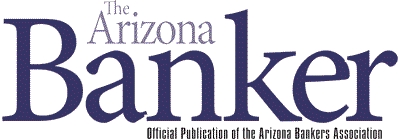On March 9, 2020, the Federal Deposit Insurance Corporation (FDIC) issued guidance encouraging financial institutions to assist customers and communities affected by COVID-19. With the Coronavirus Aid, Relief and Economic Security (CARES) Act, many banks were faced with their own set of challenges. During this time, many banks took steps to assist consumers, including allowing loan modifications with no fees, waiving fees on accounts and offering in-home banking services. Many were also participating in providing Paycheck Protection Program (PPP) loans to small businesses. Because of these accommodations, many banks struggled with high volumes of COVID-related mortgage requests and questions from customers and PPP loans. Banks were overcoming these overwhelming volumes while also maintaining their efforts to keep the physical locations of the banks safe for both customers and the employees. Through these difficult times, financial institutions created and revised policies and procedures to adjust and provide excellent service to customers.
Throughout the pandemic, the FDIC shifted to conduct all consumer compliance examinations and industry meetings virtually. At the beginning of the pandemic, the FDIC paused examination activities to allow financial institutions to focus on meeting the needs of their customers. As the examinations resumed, the FDIC allowed flexibility in scheduling to accommodate the institution’s needs. There were some hurdles in the earlier stages due to operational and staffing challenges that limited the ability of management to respond to supervisory requests because of the shift to the virtual examinations. However, the FDIC was still able to conduct all consumer compliance and Community Reinvestment Act (CRA) examinations within the timeframes established by the FDIC policies.
The most common violations during the 2020 examinations involved: the Truth in Lending Act (TILA), Truth in Savings Act (TISA), Flood Disaster Protection Act (FDPA), Electronic Funds Transfer Act (EFTA), and the Real Estate Settlement Procedures Act (RESPA). The FDIC uses a risk-focused methodology in conducting is compliance examinations, and the most frequently cited violations typically involve regulations that represent the greatest potential harm to consumers. The FDIC initiated eight formal enforcement actions and 16 informal enforcement actions to address consumer compliance examination findings. The total voluntary payments to consumers totaled approximately $7.4 million to more than 67,000 consumers.
RESPA Section 8(a) prohibits giving or accepting a thing of value for the referral of settlement service business involving a federally-related mortgage loan. The FDIC continued to find RESPA Section 8(a) violations involving illegal kickbacks, disguised as above-market payments for lead generation, marketing services, and office space or desk rentals. Paying for leads is acceptable, but paying for a referral is prohibited. To distinguish between the two, examiners look to whether the person providing the lead/referral was merely giving information about a potential borrower to a settlement service provider or if a person was “affirmatively influencing” a consumer to select a certain provider. “Affirmative influence” means recommending, directing or steering a consumer to a certain provider. Often, true leads are lists of customer contacts that are not conditioned on the number of closed transactions resulting from the leads or any other considerations, including the endorsement of a settlement service.
To address the fair lending risks, banks could consider regularly reviewing credit policies to ensure the Equal Credit Opportunity Act and Regulation B permit such considerations.
To mitigate the risks associated with RESPA violations, banks could provide training to executives, senior management, and staff responsible for and involved in mortgage lending operations. Banks can also perform due diligence when considering new third-party relationships that the bank or any individuals employed at or under contract to the bank generates leads or identifies prospective mortgage borrowers. Lastly, the bank could develop a monitoring process for identifying, assessing, documenting, and reporting executive and senior management risks.
The Truth in Lending/Real Estate Settlement Procedures Integrated Disclosure (TRID) Rule also led to many violations. The Loan Estimate helps consumers understand the key features, estimated costs, and risks of the mortgage loan for which they are applying. The Closing Disclosure helps consumers understand all of the actual costs of the transaction and provide them with the opportunity to review costs and resolve any problems before closing. Under the TRID rule, the Loan Estimate is based on the “best information reasonably available” when the consumer provides disclosures. The bank must exercise due diligence in obtaining this information. The Closing Disclosure is based on an accurate disclosure standard. The FDIC found multiple instances involving Veteran Administration Loans where banks failed to comply with the “best information reasonably available” and due diligence standards under TRID by issuing Loan Estimates based on unavailable interest rates and loan terms. Additionally, examiners found potentially deceptive practices when banks represented certain terms for loans that were not generally available.
Mitigating risks for TRID violations also includes providing training to executives, senior management, and staff responsible for, or are involved in, mortgage lending operations. Additionally, the bank should establish policies and procedures to help the staff comply with regulatory requirements when preparing disclosures. Finally, the bank should also consider implementing a centralized process to complete or review disclosures to ensure accuracy.
Fair lending was also a big concern when evaluating bank compliance. During the 2020 examinations, the FDIC found a bank that would automatically deny the applicant under 30 years of age. Furthermore, the source of income was provided using a drop-down menu and any applicant who did not choose employment was denied. In another case, a credit-scoring model scored younger applicants more favorably than it scored elderly applicants. It also negatively considered applicants that were on maternity leave. There was also a bank policy that provided that the loan officer should use the highest credit score of the two applicants when the applicants were married, but the primary applicant’s credit score would be used when the joint applicants were unmarried.
To address the fair lending risks, banks could consider regularly reviewing credit policies to ensure the Equal Credit Opportunity Act and Regulation B permit such considerations. The FDIC finds that a strong compliance management system helps ensure that financial institutions treat consumers more fairly. Moreover, the bank should review any filers or other criteria for online leads, website applications or credit scoring models.
With such an unprecedented pandemic sweeping across the nation, many areas needed adjustments to adapt to the changing environment. Regardless of the impact of COVID-19, banks should continue to set up and monitor compliance programs to ensure that the banks are complying with the appropriate regulations for their business activities.
Kevin Kim joined Compliance Alliance after graduating from the Benjamin N. Cardozo School of Law in 2019. He currently serves our members as one of our hotline advisers, where he spends his days guiding our members and writing articles for our weekly and monthly publications.
Before C/A, he worked at Galaxy Digital and Refinitiv (formerly Thomson Reuters Financial and Risk) as a law clerk. He also opened a cryptocurrency mining farm and founded an after-school program business in his native New York City. His unique experience and outlook have brought an invaluable new dimension to our group.










